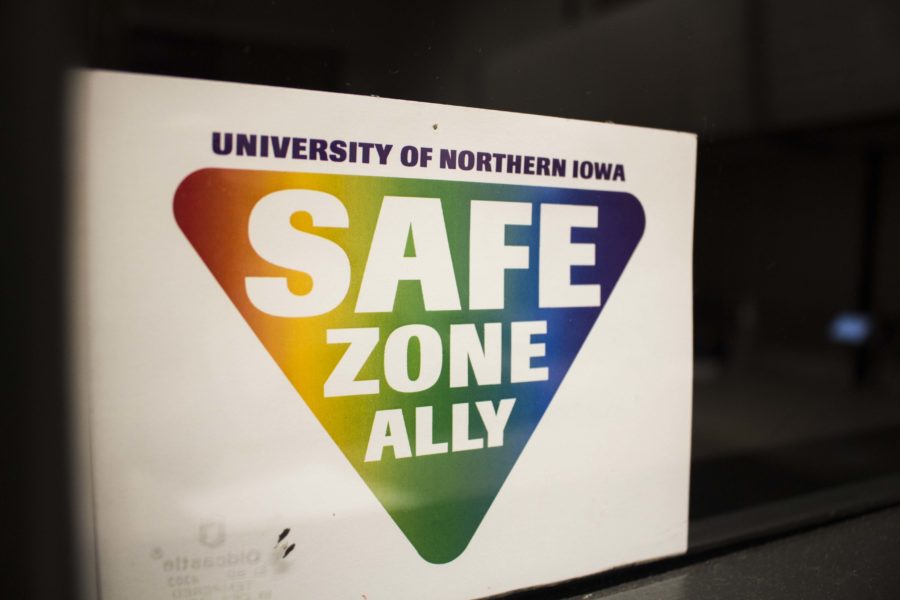UC minces words over trigger warnings
“Safe Spaces” originated in LGBT circles, and “allow respectful discourse,” according to Heppeard
Sep 1, 2016
The world is buzzing over a letter sent by University of Chicago’s Dean of Students, John Ellison, to UChicago’s incoming students, and what it might mean to universities across the country.
Ellison’s letter states that “[UChicago doesn’t] support so-called ‘trigger warnings,’ . . . and [they] do not condone the creation of intellectual ‘safe spaces’ where individuals can retreat from ideas and perspectives at odds with their own.”
But, wait . . . isn’t Ellison listed on UChicago’s webpage as an Ally for their very own Safe Space Ally Network? How does this track?
To begin with, the definition of ‘Safe Space’ used in LGBT* circles – where an August 26 article in the Advocate states the term originated – is a place where discourse on difficult topics, such as race, gender and sexuality issues, may be addressed respectfully.
It should be the goal of every university to prevent toxic environments, whether or not they designate one space or another to be ‘Safe.’ Freedom of speech is one thing, but freedom to harass, belittle and demean has no place in an academic setting with any reasonable code of conduct.
UNI’s own Code of Conduct is available at www.uni.edu/policies/302.
For examples of responses to anonymous harassment and cyber bigotry, see Amanda Schueller’s article “We Can Do Better,” published Nov. 18, 2014 on UNI’s response to the explosion of hate speech among local users of the Yik Yak app.
UChicago’s Code of Conduct states that if a student’s conduct impacts the well-being of others, “or causes significant disruption to the functioning of [UChicago]” disciplinary actions may be taken by the Dean of Students, Ellison.
His own definition of “intellectual ‘safe spaces’” directly opposes his duties as Safe Space Ally and Dean of Students. Such duties require him to provide an area where discourse can remain respectful, free of belligerency and harassment, while avoiding the disruption of UChicago’s functionality.
His very job at Chicago is to live up to the aforementioned LGBT* definition of ‘Safe Space.’
The problem at hand is a conflation of terminology. While UChicago has stated – in so many places – that harassment and persecution are not tolerated, they are not required to label Safe Spaces as such. Instead they must keep in line with the spirit of the movement through their own Code of Conduct and other policies.
The reassurance that Ellison’s “intellectual ‘safe space’” is not provided seems to me to be a poorly worded attempt to state that there are Safe Spaces to allow respectful discourse, and these are not provided as a retreat from difficult topics or opinions as some have wrongfully assumed.
Alright, then what is a ‘trigger warning,’ and why aren’t they supported?
A ‘trigger warning’ is a content warning, like ratings on films, alerting the consumer of material that certain subjects will be covered within a course.
Just like “Troy” received an ‘R’ rating for sex, violence, gore, etc., “The Iliad” – from which the film is based – and courses containing the text, can carry such warnings as well.
Ratings are predominantly used to protect children from adult material, while trigger warnings prepare victims to face material from an academic stance, rather than being blindsided in class and risking an uncontrolled emotional response.
While trigger warnings might cause some students to avoid taking one course over another, they don’t exempt the student from coursework after having enrolled.
As a student, I can understand the assumption that adult students should expect to be exposed to adult material. As a survivor of sexual assault, I cannot understand why the few moments it would take to prepare someone going through trauma recovery for sensitive material is too much to ask for.
Not supporting trigger warnings doesn’t mean that UChicago is taking a stand against trauma victims, but it does have a negative impact on how such individuals feel about UChicago as an environment of support.
A university’s job is to affect positive change on their students’ lives. While careful habituation to sensitive material can help trauma victims move forward in their lives, sudden exposure can cause major setbacks on an individual’s road to recovery.
A few moments to prepare someone is not a blank check to avoid coursework. It is a small price to be aware and sensitive in a turbulent time of a person’s life.









